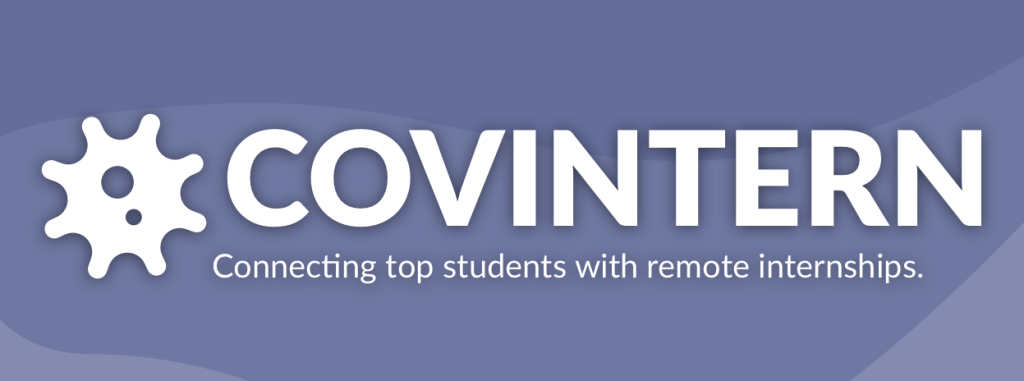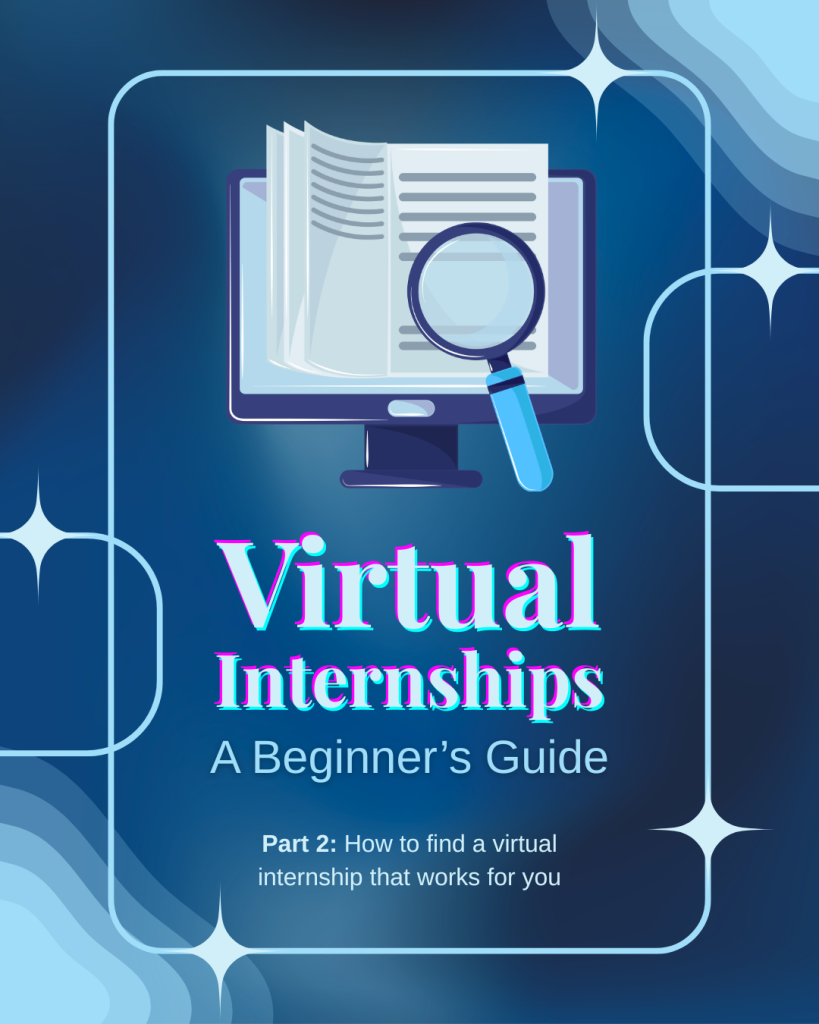In Part 1 of this series, we explored why virtual internships are a flexible, accessible, and powerful way for online students to gain real-world experience. Now, let’s get practical.
In Part 2, we’ll walk through strategies for finding a virtual internship that fits your needs, goals, and schedule—plus how to make sure the opportunity is legitimate, valuable, and worth your time.
Tips for Finding the Right Virtual Internship
Searching for a virtual internship can feel overwhelming at first, but with a focused strategy, you can find a position that fits your goals, schedule, and values. Here are some key tips to help guide your search:
1. Use Trusted Platforms
Start by exploring reputable websites that specialize in virtual internships. These platforms often vet the opportunities they post, and many offer resources to help you navigate the application process. Some well-regarded platforms include:
 |
Parker Dewey – https://www.parkerdewey.com Parker Dewey offers short-term, paid “micro-internships” that can be completed remotely. These projects typically last 5–40 hours and are a great way to gain experience and build your resume without a long-term commitment.
|
 |
Handshake – https://joinhandshake.com/ This platform is widely used by students to connect with employers seeking interns and entry-level candidates. It offers a user-friendly interface for exploring opportunities and networking events, and provides extensive resources for career development.
|
 |
LinkedIn – https://www.linkedin.com/jobs Use the job search feature to find remote listings at the internship level and connect with professionals at companies you’re interested in.
|
 |
CovIntern – https://covintern.com/jobs/ CovIntern specifically focuses on connecting employers with students for virtual internships, including those in fields like software engineering, design, marketing, and more.
|
 |
Forage – https://www.theforage.com While not a traditional internship platform, Forage offers free virtual job simulations from top companies. Completing one can help you explore a career path and add experience to your resume.
|
 |
WayUp – https://www.wayup.com A job and internship platform tailored to college students and recent graduates, with many remote listings.
|
These are some starting points, but not all platforms are created equal, and not every opportunity is as good as it looks on paper.
2. Do Your Research
Before applying, take time to learn more about the company and the internship experience. Look up:
- The company’s website and mission
- Reviews on sites like Glassdoor or Indeed
- Feedback from past interns (search LinkedIn, Reddit, or general web forums)
Ask yourself:
- Does this company have a solid reputation?
- Is the work relevant to my goals?
- Will I be working on real projects or just doing repetitive tasks?
Not every internship will check every box, but it should at least provide value by helping you learn something new, making professional connections, or building your resume.
3. Evaluate Compensation and Time Commitment
Paid internships are ideal because they offer a fair exchange of compensation for work and because they demonstrate that the company values your time and contributions. That said, some short-term or non-profit internships may be unpaid while still offering valuable learning experiences and a notable line on your resume.
A few things to keep in mind:
- If an internship is unpaid, it should be low time-commitment, educational in nature, and clearly beneficial to your career goals.
- Never pay to work. Some platforms charge students to place them in unpaid internships—and that’s a red flag. If you’re paying a fee to get connected to a company and you’re expected to work for free, that’s not a fair exchange. If you’re going to spend money, let it be on a course or micro-credential instead.
- Be cautious of vague descriptions, unpaid roles that ask for full-time hours, or internships that feel more like a sales job than a learning experience.
Your time and skills are valuable, and a good internship should reflect that.
4. Ask Questions and Advocate for Yourself
Once you’re in touch with a potential internship provider, don’t be afraid to ask for details:
- What will a typical week look like?
- Who will I report to, and how often will we check in?
- Will I receive feedback or mentorship?
- Are there opportunities to contribute to meaningful projects?
Asking these questions not only shows that you’re serious—it also helps you assess whether the experience will be structured, supportive, and aligned with your goals.
How to Prepare for a Virtual Internship
 |
✔ Polish Your Resume and Cover LetterTailor your resume to highlight relevant coursework, projects, and transferable skills like communication, time management, or tech proficiency. Provide details in your cover letter. If you’re already taking asynchronous courses in an online program, that’s excellent evidence for your ability to work independently, meet deadlines, and stay organized in a remote setting! |
✔ Get Comfortable With Digital ToolsFamiliarize yourself with tools commonly used in remote work environments, such as:
|
 |
 |
✔ Create a Productive WorkspaceEven a small desk in a quiet corner can work, as long as it’s distraction-free and set up for focus. Having a dedicated space helps you shift into “work mode” when it’s time to start your internship tasks. |
✔ Set Clear ExpectationsOnce you land a virtual internship, communicate with your supervisor about expectations, working hours, deadlines, and check-ins. Ask questions and seek feedback—it shows initiative and helps you grow. |
 |
Make the Most of Your Virtual Experience
Here are some ways to get the most value from your internship:
- Track Your Projects and Achievements
Keep a list of tasks you’ve completed, skills you’ve developed, and contributions you’ve made. This will help when updating your resume or preparing for interviews and can be the basis of a project portfolio. - Ask for Feedback
Regular feedback helps you improve and shows that you’re eager to learn. It also gives you insight into how your performance is viewed by professionals in the field. - Build Relationships
Attend virtual meetings, reach out to team members, and take initiative to stay connected. A brief email or message to introduce yourself and express interest in learning more about their role can go a long way. - Reflect on Your Experience
After your internship, consider what you learned about yourself and the industry. Did it spark a deeper interest in the field, or help you rule out a certain path? Either way, it’s valuable information for your future planning.

